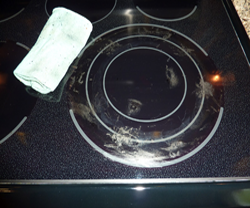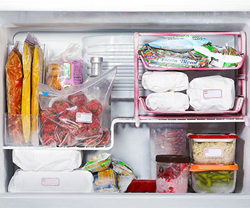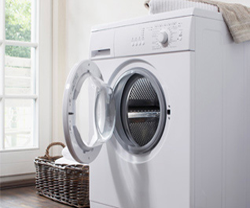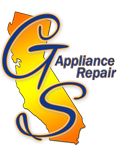Use & Care Tips
Many consumers neglect proper usage and maintenance procedures for modern appliances, compromising the safety of their operation and leading to decreased life expectancies. By practicing the below use & care tips, you can increase the overall safety of your home and hopefully have to call us less often!
Oven / Stove / Range Use & Care Tips

- Avoid using abrasive cleaner and metal pads to clean your glass top stove as this can cause scratches.
- Interior oven light bulbs can be easily replaced. Most ovens use 40W appliance bulbs.
- Avoid storing heavy objects in shelves your glass top stove. Replacing a cracked glass stove top is among the most expensive of common appliance repairs.
- Cast iron and stone cookware can scratch glass top stoves depending on the strength of the glass.
Dryer Use & Care Tips
- Ensure that your dryer hose is as short as possible and that it does not have any kinks to ensure the most efficient drying.
- Clean your lint screen before each load to ensure the safe and efficient operation of your dryer.
- Don’t overload your dyer – this will prevent proper circulation of heated air.
- Ensure that your dryer vent pipe is made of aluminum rather than vinyl. Vinyl vent hoses will not withstand the heat of modern dryers and should be replaced immediately.
- Every few years, consider opening the chassis of your dryer to clear out any excess lint. This will ensure the safe operation of your dryer by preventing dryer fires.
- Check to ensure that your dryer vent is not obstructed to ensure efficient operation and to prevent dryer fires.
Refrigerator Use & Care Tips
- Clean your condenser coils periodically to ensure efficient operations and to prevent your compressor from overworking itself. Be sure to use a non-abrasive material to avoid damaging your refrigerator.
- Set your temperature settings to a reasonable temperature. We recommend keeping the refrigerator side at 36-40F and the freezer side at 0-4F depending on your personal preference. This will lower energy costs and prevent your compressor from overworking itself.
- Keeping your freezer well-stocked will prevent your compressor from overworking itself and decrease energy costs.
- Replace your water filter at least once per year to ensure clean water and to prevent leaks and clogs.
- Allow at least 4 inches of space on all sides of the refrigerator in order to allow for proper heat dissipation.
- Empty your icemaker every few months as old ice cubes can retain odors.
- If your refrigerator is producing an odor, we recommend cleaning with a 10:1 solution of water and vinegar. Remove all shelves and glass panes and clean them separately, then wipe down the inside of your refrigerator.
- Ensure that your refrigerator is level. A refrigerator’s door seals will wear out more quickly if it is on a non-level surface.

Washing Machine Use & Care Tips
- Avoid washing dark or vibrant colors in hot water to prevent discoloration.
- For front loading washing machines, ensure that you leave the door open when your washing machine is not in operation. This will prevent the accumulation of mold. If you have a mold problem, we recommend Affresh®.
- Read the labels on all of your clothing for recommended washing instructions.
- Check the pockets of your clothing prior to doing laundry. Loose items can cause damage to your clothing and to your appliance.
- Replace your washing machine hoses every 5 years. Old hoses are more prone to leaks which can cause water damage to your home.
- Ensure that your washing machine is on a level surface. Operating a washing machine on a non-level surface will cause increased wear and tear over time.

Dishwasher Use & Care Tips
- Dishwashers are designed to be used with soft water. If you have hard water, a water softener is recommended.
- Remove excess debris from dishes prior to placing them in the dishwasher to prevent damage and clogs. They don’t have to be spotless – just free of debris.
- Avoid using detergents with rinse aids alongside standalone rinse aids.
- If your dishwasher is producing a white film over your dishes, this is usually due to hard water which is no longer resolved by modern detergents due to EPA regulations on phosphates in dishwasher detergents. We recommend using LemiShine® to resolve hard water deposits.
- Ensure your dishwasher is level. Operating a dishwasher in a non-level environment can cause leakage.
- Avoid purchasing large boxes of powder dishwasher detergent. It may seem cost-efficient, but these products have a shelf life and greatly decrease in effectiveness after about two weeks.
- Certain items are not dishwasher safe – avoid placing these items in your dishwasher to prevent damage.
- When loading dishes, ensure that your dishes do not obstruct the operation of the spray arm.

